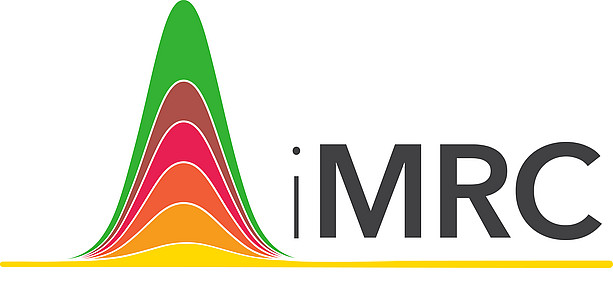Center for Integrative Metabolism Research
Many causes of disease in humans and other organisms involve metabolic disorders. Disease-related metabolic disorders can be fixed (e.g., mutations) or reversible (e.g., nutritional deficiencies) and can involve simple defects localized to specific cell types or complex changes in systemic balance. Most of the leading causes of death in Austria and other industrialized countries - heart disease, stroke, diabetes, cancer and others - are characterized by metabolic changes.
Metabolism research ranges from organelles to human populations, and aims to decipher the molecular basis of biochemical processes. The chemical fingerprints left by these processes allow systemic conclusions to be drawn about changes in metabolism and the course of diseases. For this purpose, we elucidate the metabolome (= sum of the chemical fingerprints) using NMR spectroscopy(Nuclear Magnetic Resonance) with the aim of recognizing characteristic patterns, defining associated changes in metabolic products (= biomarkers; e.g. amino acids, sugar), elucidating basic mechanisms and to make predictions for the detection, progression and treatment of diseases.
With the founding of the iMRC in 2017 and the acquisition of a 600 MHz NMR (HRSM 2016), we were able to lay the foundation for researching complex mixtures of metabolic products. In recent years, we have been able to acquire a large number of joint projects and publish highly cited publications in top journals. Another milestone was the establishment of so-called in vitro diagnostic methods for research (IVDr) which, unique in Austria, enable the automated quantification of metabolites/lipoproteins. We make these methods, training courses and support for sample preparation and data analysis available to interested researchers as part of the MUG core facilites and as BioTechMed shared infrastructure.
The iMRC is an integral part of the strategic BioTechMed-Graz cooperation and has been established in recent years as an (inter)nationally important center for cutting-edge research. The iMRC is regionally rooted and significantly expands the radius of action of regional and (inter)national joint projects. Examples of this are the integration and the essential role of the iMRC in ongoing doctoral colleges (DK-MCD), doc.funds (BioMolStruct, DP-iDP, RESPImmun), BioTechMed and MUG flagships (DYNIMO, Vascular Aging), Collaborative Research Centers (SFB Lipidhydrolysis), FFG COMET Centers (CBmed), EU projects (Europlanet, JPI HDHL-INTIMIC)).
Governance Tobias Madl, is the director of the iMRC since 2016. Together with the management committee [Prof. Juliane Bogner-Strauß (until 2018)/Prof. Peter Macheroux (from 2018), Graz University of Technology and Prof. Klaus Zangger, University of Graz] they coordinate organization, research, and strategic development of the iMRC. |
Infrastructure
|
Established methods The team of the iMRC has established (un)targeted NMR-based metabolomics for a plethora of biological systems ranging from cell-based assays to in vivo model systems and patients, including, but not limited to, IVDr-SOPs, multivariate statistical analysis, identification of unknown compounds, and stable isotope tracing. We cover the complete workflow from sample preparation to data acquisition, statistical evaluation, integration of metabolomics with other omics and clinical data and mechanistic interpretation of metabolomics data. |
Specific examples for methods established at the iMRC are:
Please contact us if your favorite matrix is not listed here or for specific requests. |
Access Please contact us if you are interested in using our research infrastructure or a collaboration. |
Training We are very active in promoting young scientists and offer training courses in metabolomics to interested scientists. For example, we are offering a 1-week hands-on training course every semester. Please get in contact with us if you are interested in a training course. |
Publications Please find a list of publications of the iMRC here |
Contact +43/316/385-71972 Gottfried Schatz Research Center for Cell Signaling, Metabolism and Aging Molecular Biology and Biochemistry Medical University of Graz Neue Stiftingtalstraße 6/VI 8010 Graz /Austria |





